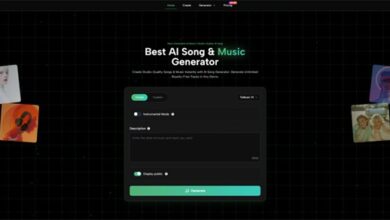Not All Jobs Are at Risk: Tech Roles AI Can’t Replace (and How to Get Them)

The rise of artificial intelligence has sparked more than just curiosity—it’s stirred a deep fear across industries. Every week, there’s a headline about AI replacing humans, automating workflows, or eliminating departments. And for many, the question is no longer if AI will change the workforce, but how much of it will still be left for people.
But here’s the reality: not every job is at risk.
Some roles—especially in tech—require a human lens that AI simply can’t replicate. These positions demand creativity, context, ethical judgment, and decision-making that goes far beyond data patterns.
Let’s talk about the jobs that AI can’t replace, the Microsoft tech roles that are built to last, and how you can step into one of them—starting today.
The Real AI Threat—And the Real Opportunity
Yes, AI will automate repetitive tasks. That’s already happening. Data entry, basic code generation, customer support bots—they’re all being reshaped.
But automation doesn’t mean elimination. It means transformation.
The roles that are thriving now, and will continue to grow, are those that work with AI—not those replaced by it. These are jobs where human oversight, system design, and strategic thinking are irreplaceable.
For example, a machine can process data, but it can’t build the system that governs the data. It can generate insights, but it can’t decide what matters most to a business. And it can’t translate technical results into a narrative that a stakeholder can act on.
The Rise of Power BI + AI: Why Data Interpretation Still Needs Humans
Power BI AI features are transforming how businesses handle analytics. With tools like smart narratives, anomaly detection, and predictive forecasting, Power BI brings machine learning into everyday decision-making.
But there’s a catch—these tools are only as effective as the person using them.
Why this role stays safe:
- Someone has to set up the model, clean the data, and apply the logic.
- The insights need to be translated into stories business teams can act on.
- Ethics, bias correction, and interpretation still rely on human judgment.
If you’re good with data and communication, this space offers huge potential. Even better? You don’t need to be a hardcore coder. Platforms like Power BI make analytics more accessible.
Azure Administrator: Keeping the Cloud Secure and Scalable
AI can optimize server loads. It can even predict system failures.
But when it comes to managing an organization’s infrastructure, an Azure administrator is still in control.
Why this job is AI-resistant:
- Security and compliance decisions require context.
- Admins must manage real-time incidents and apply business-specific rules.
- Hybrid environments (on-prem + cloud) often require hands-on coordination.
According to recent salary benchmarks, the Azure administrator salary in the U.S. ranges between $85,000 and $125,000. And with more companies migrating to Azure, demand for skilled admins is rising fast.
If you want to get started:
- Learn Azure fundamentals (start with Microsoft’s AZ-104 certification path).
- Practice setting up virtual networks, configuring storage, and managing Azure identities.
- Build a small home lab to simulate cloud workflows.
Skills AI Still Can’t Learn
Across all these roles, what keeps them AI-proof isn’t just the technical know-how. It’s the human skills layered on top of that.
- Contextual decision-making: Machines follow rules. Humans adapt.
- Collaboration and communication: Explaining a system to non-tech teams takes more than code.
- Creative problem-solving: When something breaks or shifts, it’s your call—not the machine’s.
No matter how advanced AI gets, these human elements keep tech jobs dynamic—and safe.
How to Step Into These Roles—Even If You’re Not There Yet
If you’re not already working in tech, here’s the good news: these careers are more accessible than ever.
Start learning for free
There are tons of platforms—Microsoft Learn, Coursera, YouTube—that offer beginner-level training for Power BI and Azure.
Don’t wait to build projects
Use sample data, set up your own dashboards or cloud environments. Hands-on experience speaks louder than a certificate.
Network and grow
Join Power BI and Azure communities on LinkedIn or Reddit. Share what you’re learning. Ask for feedback.
Apply before you feel “ready”
Entry-level or internship opportunities often value potential more than experience. If you’ve practiced and have a portfolio, you’re ready to apply.
The Future Isn’t About Competing with AI—It’s About Collaborating with It
The best tech roles of tomorrow won’t go to those who fear AI—but to those who know how to use it wisely.
By focusing on Power BI AI, building cloud infrastructure as an Azure administrator, or developing hybrid skills across business and technology, you place yourself in a position where AI becomes your assistant—not your replacement.



